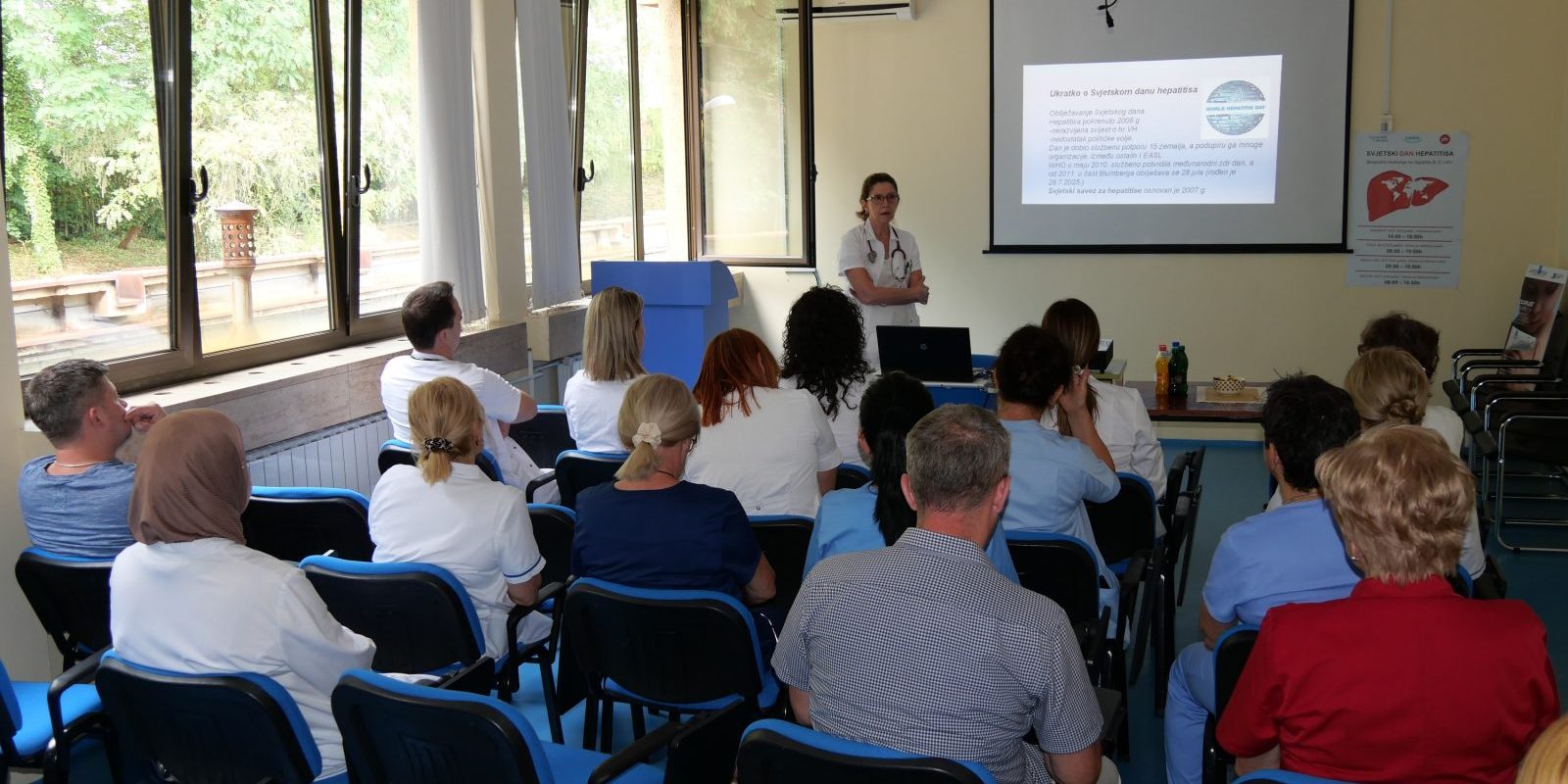World Hepatitis Day is observed annually on July 28, commemorating the birthday of Dr. Baruch S. Blumberg, the American scientist who discovered the hepatitis B virus and developed the first vaccine against it, a breakthrough that earned him the Nobel Prize in 1976.
The World Health Organization uses this occasion to highlight the global importance of preventing, detecting early, and effectively treating viral hepatitis, with a particular focus on hepatitis B and C.
Recent WHO guidelines emphasize simplified treatment criteria for adults and adolescents with hepatitis B and expand the indications for antiviral prophylaxis in pregnant women to help prevent mother-to-child transmission. The recommendations also aim to enhance diagnostic capabilities, including the identification of hepatitis D co-infection, and ensure the delivery of the highest quality care services.
On the occasion of World Hepatitis Day, the Clinic for Infectious Diseases at the University Clinical Center Tuzla (UKC Tuzla) organized a series of activities aimed at raising awareness about hepatitis, with a focus on prevention, diagnostics, and treatment.
As part of the program, a lecture titled “Advantages of Diagnostics and the Importance of Prevention of Viral Hepatitis B and C” was held at the Educational Center of the Clinic. The lecture was delivered by Assoc. Prof. Dr. Jasminka Petrović and was intended for healthcare professionals. It provided valuable insights into modern approaches to the early detection and management of viral hepatitis.
According to Dr. Petrović, an estimated 500 million people worldwide are living with chronic hepatitis B or C. Because certain types of viral hepatitis are easily transmitted, she emphasized the importance of screening to identify chronic carriers or individuals with active disease. Timely treatment not only helps prevent the spread of infection but also eliminates potential sources of transmission.
“At the Clinic for Infectious Diseases, we treat hepatitis A, B, C, and G. In many cases, hepatitis progresses silently into a chronic form, often going undetected until serious complications such as cirrhosis or liver cancer develop—at which point treatment outcomes are significantly poorer. Early detection is crucial for preventing disease transmission and achieving better treatment results,” noted Dr. Petrović.
She also highlighted a positive trend: a recent decline in hepatitis B cases, largely attributed to the inclusion of hepatitis B vaccination in Bosnia and Herzegovina’s Mandatory Child Vaccination Program. “The hepatitis B vaccine is considered one of the safest and most effective vaccines available. Full immunization consists of three doses, after which a person is considered protected against hepatitis B,” she added.
On the same day, the Cabinet for Hepatitis and Prophylaxis of Blood-borne Infections at the University Clinical Center Tuzla offered free hepatitis B and C testing for all citizens, without the need for a referral, between 8:00 a.m. and 3:00 p.m. In addition to testing, visitors received information on risk factors, modes of transmission, prevention measures, and the benefits of early diagnosis and modern treatment options.
According to the Director of UKC Tuzla, Prof. Dr.Šekib Umihanić, the efforts of the Clinic for Infectious Diseases staff play a key role in raising public awareness about the importance of preventive screening and health education. “The University Clinical Center Tuzla continuously invests in strengthening preventive efforts and educating both healthcare professionals and the general population. It is through knowledge and timely diagnostics that we can prevent the serious health consequences associated with hepatitis. Our goal is to contribute to the global fight against viral hepatitis through expert medical work, collaboration with relevant institutions, and raising public awareness,” emphasized Prof. Dr. Umihanić.







